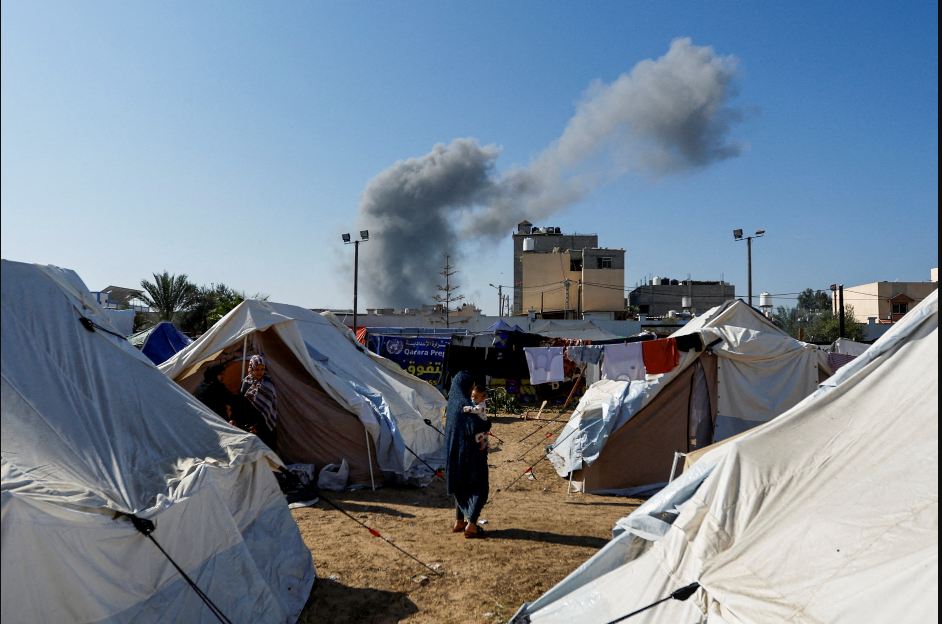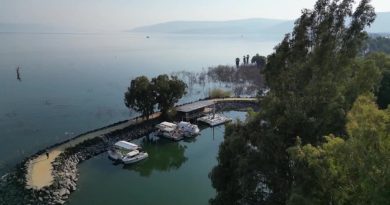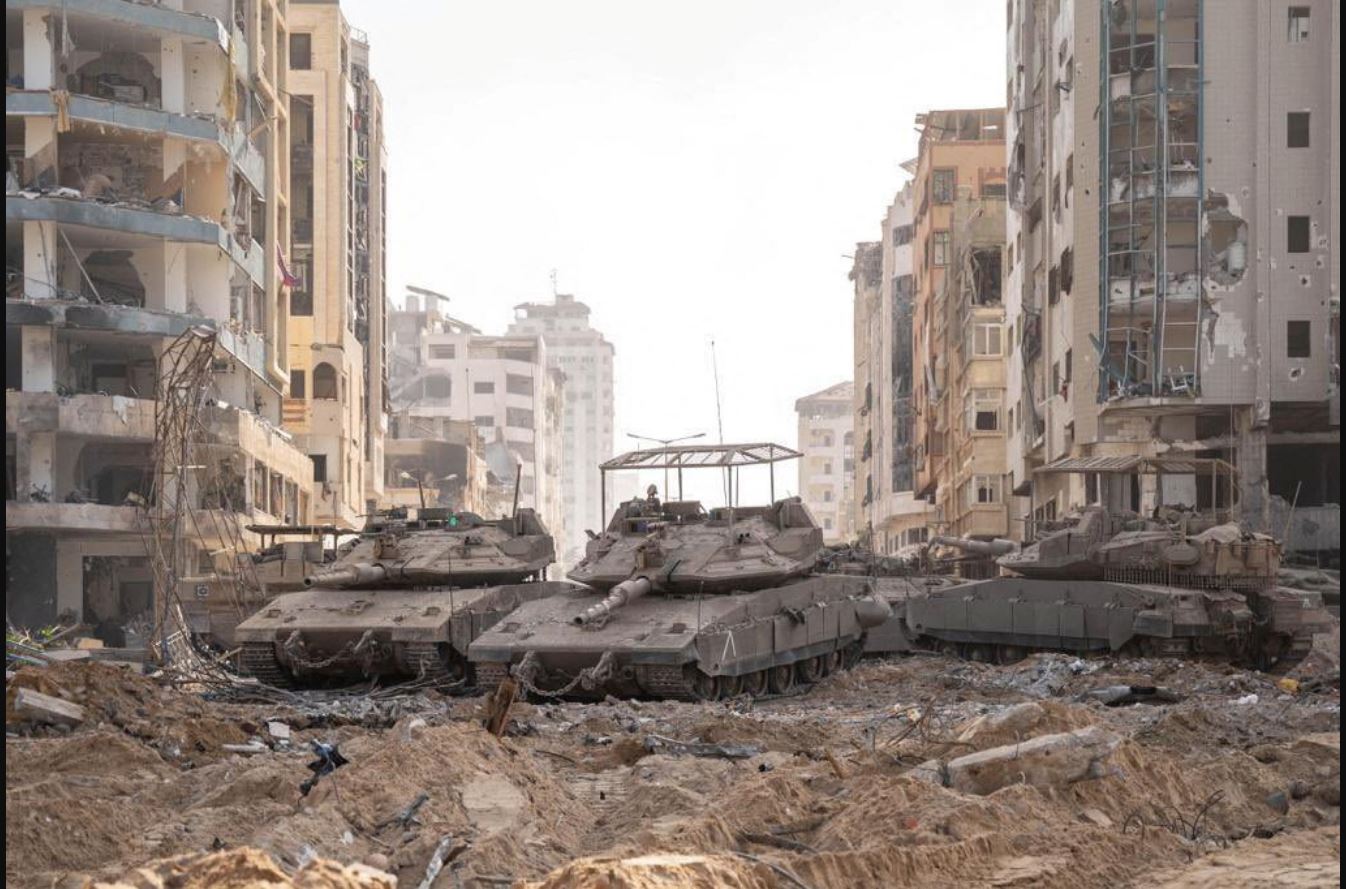Israel rebuffs allies’ calls to ‘pause’ Gaza assault in first open disagreement
(Reuters) – Israel is rejecting calls for respite in Gaza as its closest allies in the West have coalesced around the idea of “humanitarian pauses”, or temporary stops to the bombardment.
Growing international distress at the conditions for 2.3 million people trapped under the heaviest air strikes Israel has ever unleashed on the Mediterranean enclave led major powers this week to call on Israel to allow such pauses to get aid in and Israeli hostages held by Islamist militant group Hamas out.
The issue has opened the first public split between Israel and backers including the United States, the EU, UK and other G7 members such as Japan over the campaign after tight alignment and support in the nearly three weeks since Hamas militants burst from Gaza into southern Israel on a deadly rampage.
“Israel is opposed to a humanitarian pause or ceasefire at this time,” Lior Haiat, Israel’s Foreign Ministry spokesperson, said on Friday, while a senior Israeli official said calls for a pause in fighting appeared in “poor faith.”
The chorus of appeals for a pause followed days of intense diplomacy at U.N. headquarters in New York and in Brussels, and was a compromise between those, such as Spain, who wanted to push Israel to call a ceasefire, and those who say Israel’s right to self defence was foremost.
Israel says Hamas killed some 1,400 people including children and took more than 200 hostages in its Oct. 7 rampage.
The Hamas-controlled Gaza health ministry said 7,326 Palestinians have died in retaliatory air strikes, including around 3,000 children. Supplies of food, water, fuel and medicine are scarce in the 40-km-long (25-mile-long) strip.
Efforts were under way bilaterally and at the U.N. to urge Israel to allow some form of pause, Japan’s Foreign Minister Yoko Kamikawa told reporters on Friday.
“I welcome the growing global consensus for a humanitarian pause in the conflict. I repeat my call for a humanitarian ceasefire, the unconditional release of all hostages, and the delivery of life-saving supplies at the scale needed,” U.N. Secretary-General Antonio Guterres said in a statement on Friday.
For the moment, a respite from the hostilities appears distant as Israel intensified ground and air operations on Friday.
U.S.-led discussions among Egypt, Israel and the U.N. on improving aid access through the Rafah border crossing were currently the main focus, one EU official said. A White House official confirmed the talks and said they also were seeking agreement by Israel to allow fuel vital for hospitals.
Agreement on these points could lead to more focus on lowering the violence in southern Gaza to let aid enter, the EU official said.
An average of 12 trucks a day have entered Gaza in recent days, down from 500 a day prior to the conflict, Guterres said on Friday.
Israel says any respite from fighting benefits Hamas, which it is determined to destroy, and which it says diverts aid such water, fuel, food and medicine to its fighters.
“A ceasefire means giving Hamas time to rearm itself, so they can massacre us again,” Israel’s U.N. Ambassador Gilad Erdan told the General Assembly on Thursday, calling it “an attempt to tie Israel’s hands.”
The U.N. General Assembly on Friday overwhelmingly passed a nonbinding resolution that called for an immediate humanitarian truce between Israel and Hamas and demanded aid access to Gaza and protection of civilians.
Earlier on Friday, a Hamas official said the group, which has freed four captives so far, intended to release civilian Israeli hostages but made this contingent on a ceasefire.
Intermediary Needed
Even among Israel’s allies, there is no consensus on what is meant by a humanitarian pause.
Emanuela-Chiara Gillard, senior fellow at the Oxford Institute for Ethics, Law and Armed Conflict, said agreement on the language did not mean implementation of a pause was imminent.
“Someone needs to act as a neutral intermediary to agree the precise modalities,” she said, noting this could be a U.N. agency, a player like the Red Cross or even a state.
She said “ceasefire” tends to refer to a general suspension of fighting while humanitarian pauses or corridors are more limited. They should be designed not to have any strategic impact on the conflict as a whole and be intended for a specific purpose, she said.
U.S. National Security Council spokesperson John Kirby called a humanitarian pause “a temporary and local agreement to stop the fighting long enough to do some discrete task.”
He said the answer to how long and how geographically wide a pause would be was: “It depends”. He said multiple pauses over more than one day day might be needed. “If that’s what it requires, then we absolutely will try to get such pause or pauses in place.”
U.N. spokesman Stephane Dujarric said the differences were semantic but: “What we want is to see the fighting stop so that humanitarian aid can get in.”



